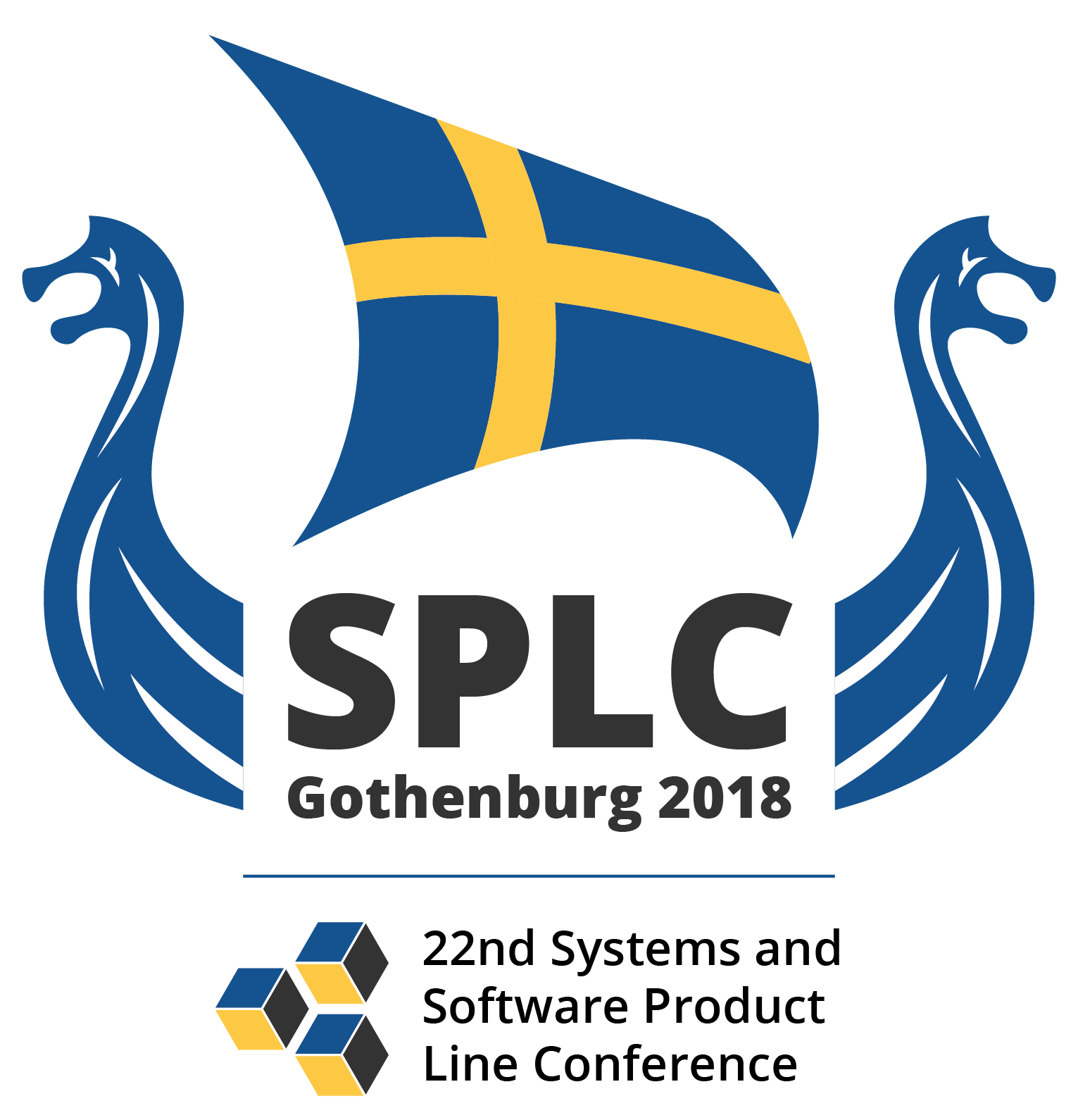We are currently in Phase 2 of the challenge track, and the Call for Solutions is open. The following cases have been selected as representative and timely research challenges in the area of software and system product line engineering. For more information about the process followed in Phase 1, please see the Call for Challenge Cases page.
- Interoperability of Software Product Line Variants by Ferruccio Damiani, Reiner Hähnle, Eduard Kamburjan, and Michael Lienhardt.
- Feature Location Benchmark with ArgoUML SPL by Jabier Martinez, Nicolas Ordoñez, Xhevahire Tërnava, Tewfik Ziadi, Jairo Aponte, Eduardo Figueiredo, and Marco Tulio Valente.
- Apo-Games – A Case Study for Reverse Engineering Variability from Cloned Java Variants by Jacob Krüger, Wolfram Fenske, Thomas Thüm, Dirk Aporius, Gunter Saake, and Thomas Leich.
- Localizing Configurations in Highly-Configurable Systems by Paul Gazzillo, Ugur Koc, Thanhvu Nguyen, and Shiyi Wei.
Each of these cases presents a set of concrete tasks (some of which may be optional) which are to be solved by the participants. The case descriptions, which typically include pointers to additional resources, are available through the respective links above.
The SPLC 2018 Challenge Track now seeks your solutions to all of these interesting problems of various natures. To participate, select a case you are interested in and submit a paper that tackles the tasks and challenges described in that challenge case. You are welcome to submit multiple papers, where each paper is related to one case. Papers should be accompanied by solution artifacts as necessary, depending on the case study and the concrete tasks which are to be solved. Thus, solution artifacts may range from hand-crafted sketches or models to fully automatically generated development artifacts or analysis results. Wherever possible, solution artifacts should be made available in a public repository or be hosted on a publicly available website to ensure reproducibility of the results. The paper should include a description of your solution and include an evaluation according to the evaluation criteria stated by the respective case description. Note that early ideas, early results, and partial solutions are welcome. Also, note that submissions that apply existing tools and techniques to address a given challenge are also welcome.
Solutions will be evaluated by program committees, one separate committee per case, which are comprised of reviewers who have the expertise required to evaluate submitted solutions. Typically, one or two case authors are part of a case’s PC. Accepted solutions will be presented and discussed at the conference and their corresponding papers will be published in the official conference proceedings. Please note that case authors cannot submit a solution to their own case study.
SUBMISSION INFORMATION
Solution descriptions must be submitted through EasyChair (Challenge Solutions track) and have a maximum of 4 pages including all text, figures etc. One additional page containing only references may be included. Accepted papers will be presented during the conference. At least one author of each accepted solution must register to the conference.
The ACM styles have changed recently, and all authors should use the official 2017 ACM Master article template.
Latex users are indicated to use the “sigconf” option, so they are recommended to use the template that can be found in “sample-sigconf.tex”. In this way, the following latex code can be placed at the start of the latex document:
\documentclass[sigconf]{acmart}
\acmConference[SPLC'18]{22nd International Conference on Software Product Line}{10--14 September, 2018}{Gothenburg, Sweden}
IMPORTANT DATES (AOE TIME)
The following describes the important dates for submitting solutions to the challenge track.
-
- Solution papers submission deadline: Friday May 25, 2018
- Solution papers notification: Friday June 15, 2018
- Camera ready solution papers deadline:
Monday July 2, 2018Monday July 16, 2018
PROGRAM COMMITTEE
- Sven Schuster, Technische Universität Braunschweig
- Eduard Kamburjan, Technische Universität Darmstadt
- Paul Gazzillo, Stevens Institute of Technology
- Michael Nieke, Technische Universität Braunschweig
- Jacob Krüger, Harz University of Applied Sciences
- Shiyi Wei, The University of Texas at Dallas
- Wesley K. G. Assunção, Federal University of Technology – Paraná
- Ugur Koc, University of Maryland
- Thanhvu Nguyen, University of Nebraska, Lincoln
- Jabier Martinez, Tecnalia
- Roberto Erick, Ecole de Technologie Superieure
- Abdelhak Seriai, Lirmm/université Montpellier
- Jacopo Mauro, University of Oslo
- Thomas Thüm, Technische Universität Braunschweig
- Lukas Linsbauer, Johannes Kepler University
- Wolfram Fenske, University of Magdeburg
- Jeho Oh, University of Texas
- Mathieu Acher, INRIA
- Michael Lienhardt, University of Bologna
